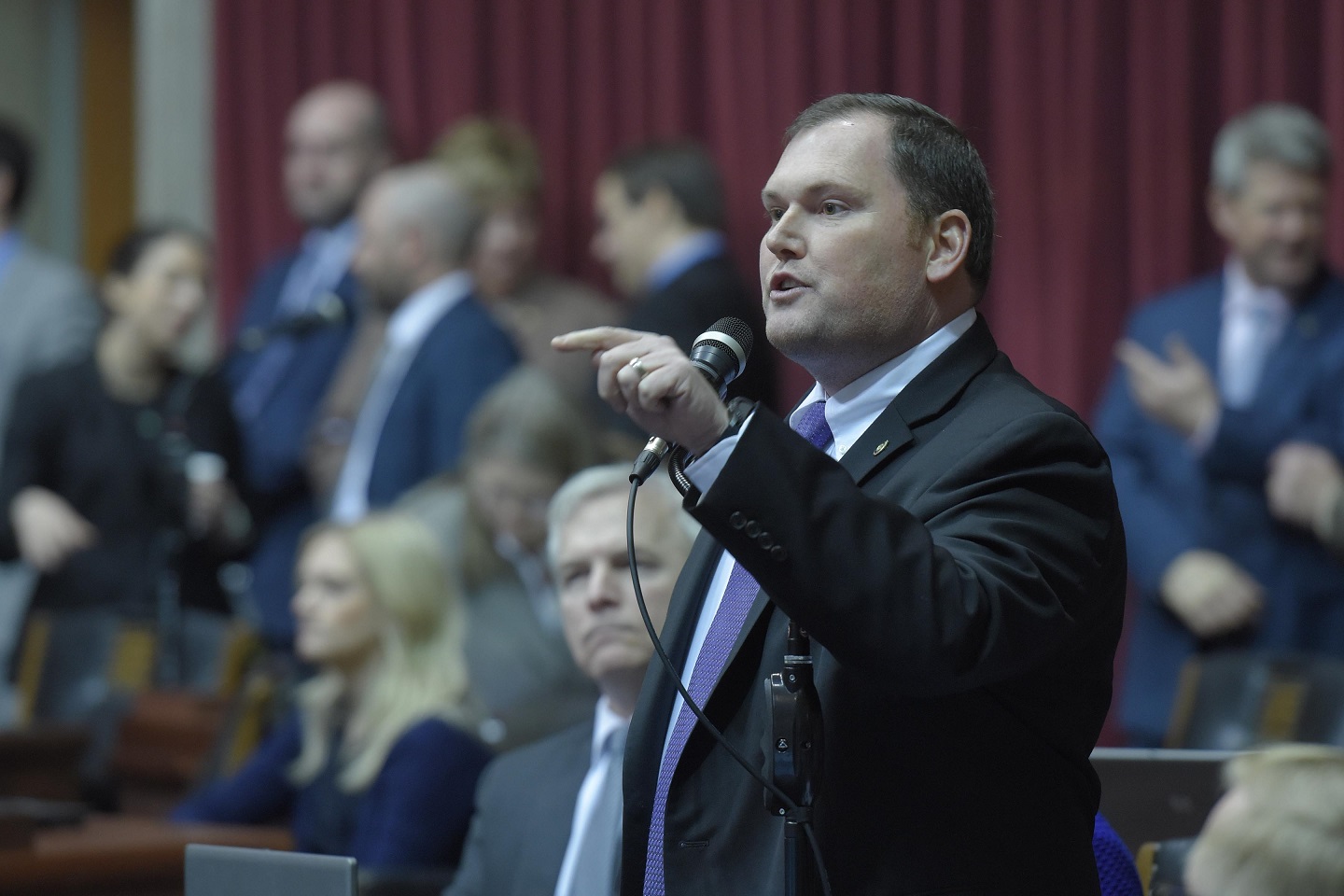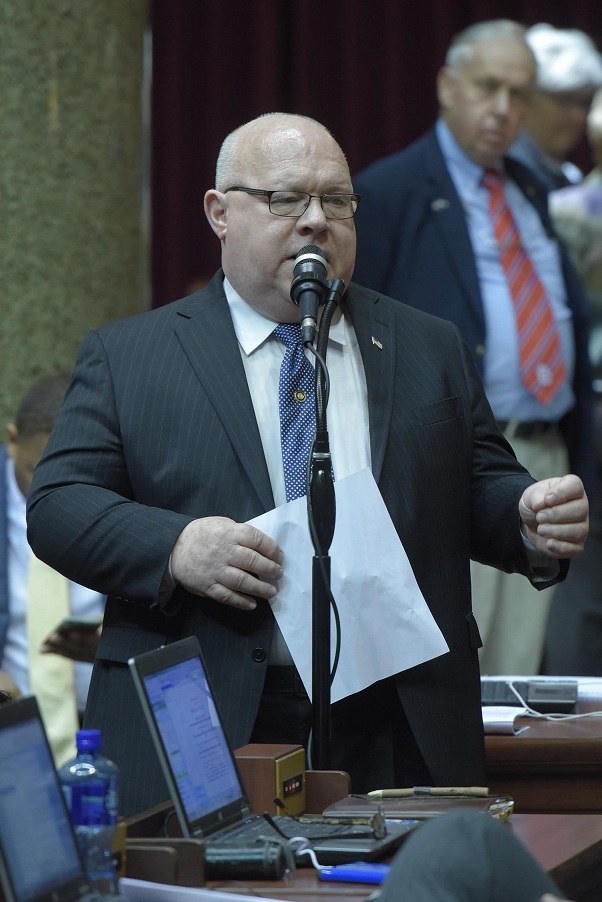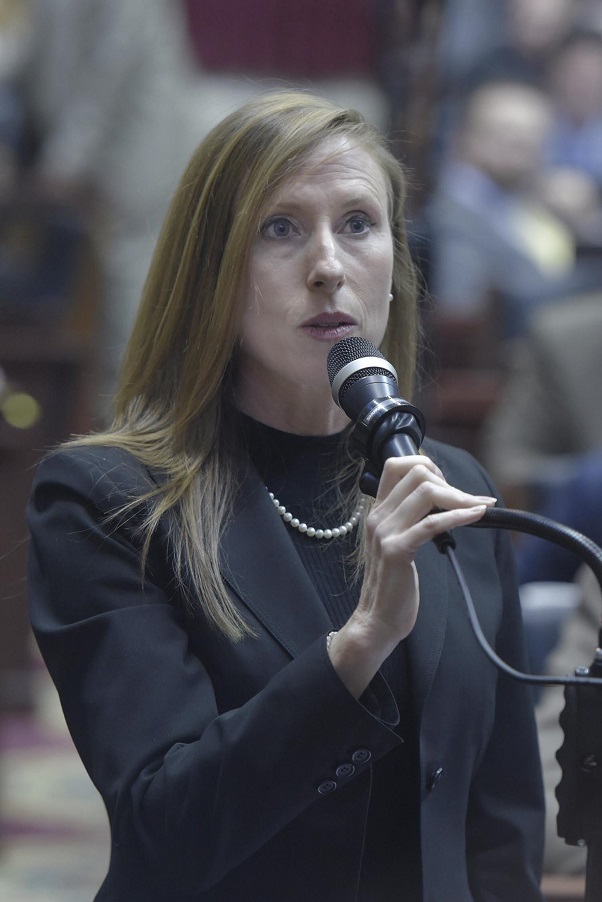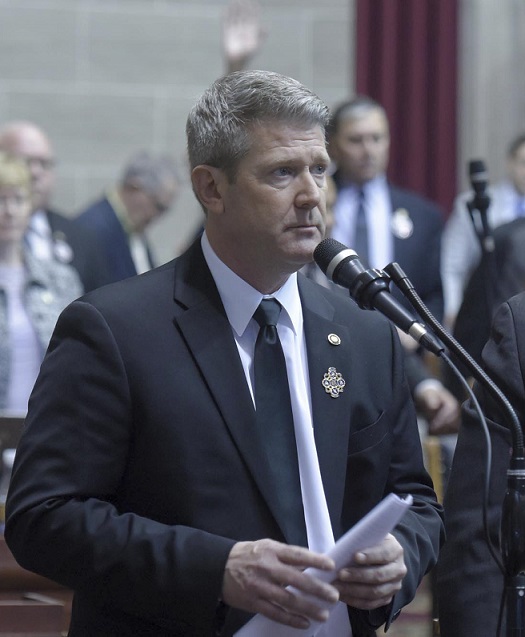Missouri legislative Republicans’ labor reform agenda took another step Thursday with the final passage of a bill barring project labor agreements (PLAs) for public projects.

The House voted to send Senate Bill 182 to Governor Eric Greitens (R), who had called for the elimination of PLAs.
Under a PLA, a governing body requires non-union contractors to pay union dues to workers on a project. SB 182 would prohibit that, and would bar local governments from giving preferential treatment to union contractors. Governing bodies that violate the bill’s provisions would lose state funding and tax credits for two years.
Republicans said PLAs are unfair to non-union workers and contractors. Arnold representative Rob Vescovo (R) said PLAs discriminate against the largest segment of Missouri’s workforce.
Lake St. Louis Republican Justin Hill said PLAs amount to extortion.

Democrats called the legislation an attack on unions. Representative Bob Burns (D-St. Louis) said PLAs protect local governments by ensuring that they will have work done that is quality and completed on time by skilled workers. He said his time on a board of education in Affton provided evidence of that.
SB 182 was carried in the House by Vescovo, who began introducing such legislation as a freshman in 2015. It is expected Greitens will sign the bill into law.
The House’s passage of SB 182 follows other labor reforms it has proposed, including the passage of a right-to-work bill signed into law by Greitens earlier this year. That legislation prevents the collection of union dues or fees from workers as a condition of employment.
Earlier story: House Republicans continue labor reform efforts; address project labor agreements


